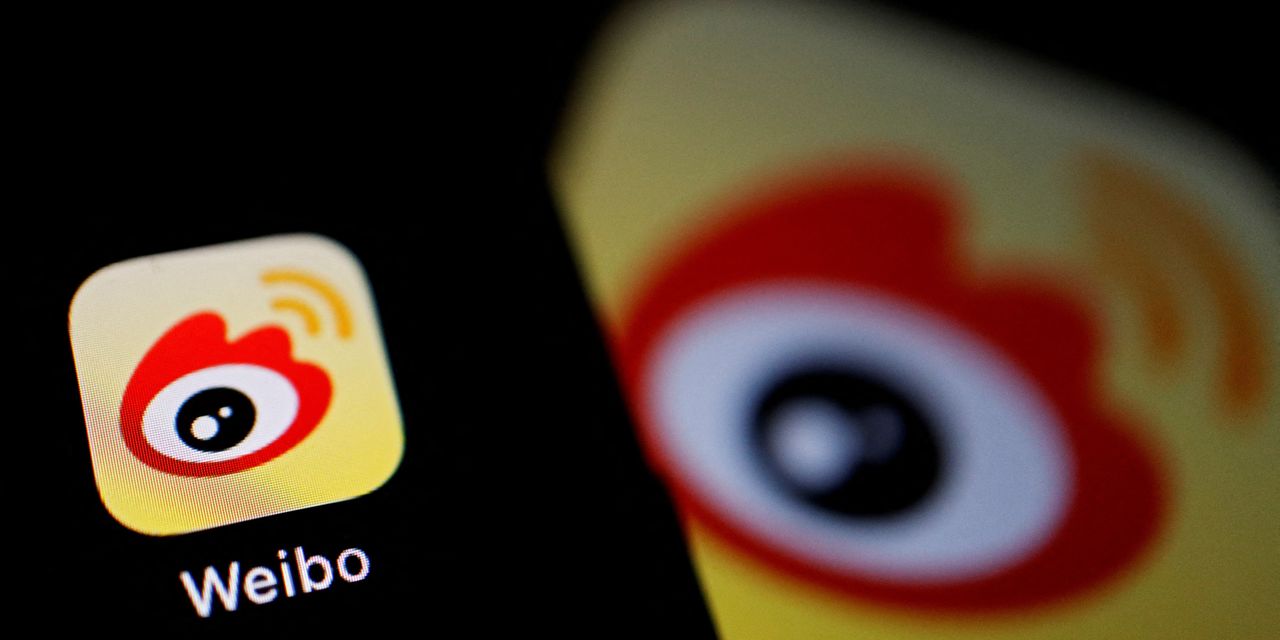
SINGAPORE—Chinese authorities said they have fined social-media giant Weibo Corp. millions of dollars for a string of infractions, the second time in two weeks that Beijing has announced the punishment of a major internet platform amid a further tightening of controls online.
The Cyberspace Administration of China said on Tuesday that Twitter-like Weibo had been ordered to pay a penalty of 3 million yuan, the equivalent of about $471,000, for disseminating “illegal information” in severe violation of regulations including the country’s cybersecurity law and its law governing the protection of minors.
The internet regulator said its Beijing office had separately fined Weibo more than 40 times for violations over the first 11 months of the year, resulting in a total penalties equal to $2.2 million.
Weibo said the company accepts the penalty and will start to implement corrective measures, including cleaning up soft pornography and misleading marketing content. The platform had 511 million monthly active users as of September 2020, the most recent number available on the company’s website.
The company’s newly listed Hong Kong shares fell almost 10% in trading Tuesday. The Hang Seng Tech Index dropped 2.3%.
Weibo’s latest penalty comes two weeks after the regulator fined Douban.com, a popular online platform for discussing movies, entertainment and culture. The cyberspace agency said in a statement on Dec. 2 that Douban had also disseminated content that violated the country’s cybersecurity regulations and fined it the equivalent of nearly $236,000. Douban had been separately fined by its Beijing office a total of $1.4 million for content transgressions during the first 11 months of the year, the agency said.
Douban didn’t immediately respond to a request for comment.
Authorities didn’t point to specific content they deemed illegal in the case of either company.
Chinese authorities have been tightening control of internet content, news and other information in the run-up to President Xi Jinping’s expected coronation as China’s most senior leader for a precedent-breaking third term next year. Earlier this year, the country’s central economic planning agency unveiled plans to expand restrictions on the involvement of “nonpublic capital” in swaths of the news industry—a move that analysts say served a warning to news organizations with private funding to step between approved lines.
The penalties against Weibo and Douban also come on the heels of an explosive post on the Weibo account of Chinese tennis star Peng Shuai accusing a former vice premier of sexual assault.
The post appeared on Ms. Peng’s account on Nov. 2 and stayed visible for roughly 20 minutes before disappearing. Searches for her account were blocked on Weibo and her name was censored across much of the Chinese internet. Some of the world’s biggest tennis stars posted messages on Twitter asking about her whereabouts, and the Women’s Tennis Association later announced it was halting all events in China out of concern for her safety.
Douban.com, where users are known for deploying clever internet jargon and roundabout language to evade censors, was one of the few platforms on the Chinese internet to host active discussion of Ms. Peng’s predicament, if only briefly.
Xiao Qiang, a researcher focusing on China’s internet at the University of California, Berkeley, said punishments are only likely to become more heavy-handed as the Communist Party relies on platforms to police discussion online according to increasingly stringent standards.
“Chinese censorship is like whack-a-mole,” he said. “It is impossible to stop more than 800 million internet users from talking.”
—Rachel Liang contributed to this article.
Write to Liza Lin at [email protected]
Copyright ©2021 Dow Jones & Company, Inc. All Rights Reserved. 87990cbe856818d5eddac44c7b1cdeb8
Appeared in the December 15, 2021, print edition as ‘China Imposes Fines On a Leading Platform.’








